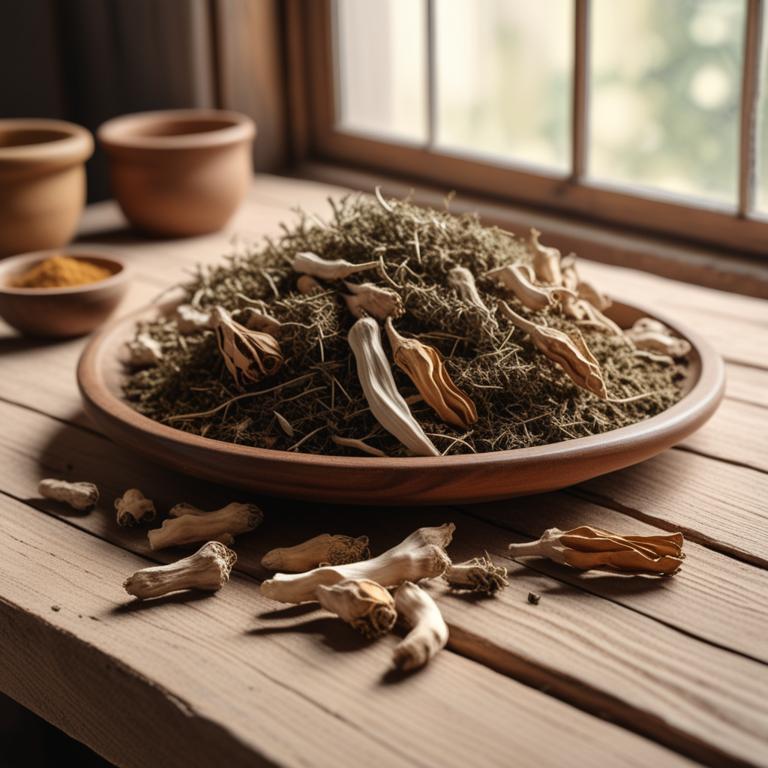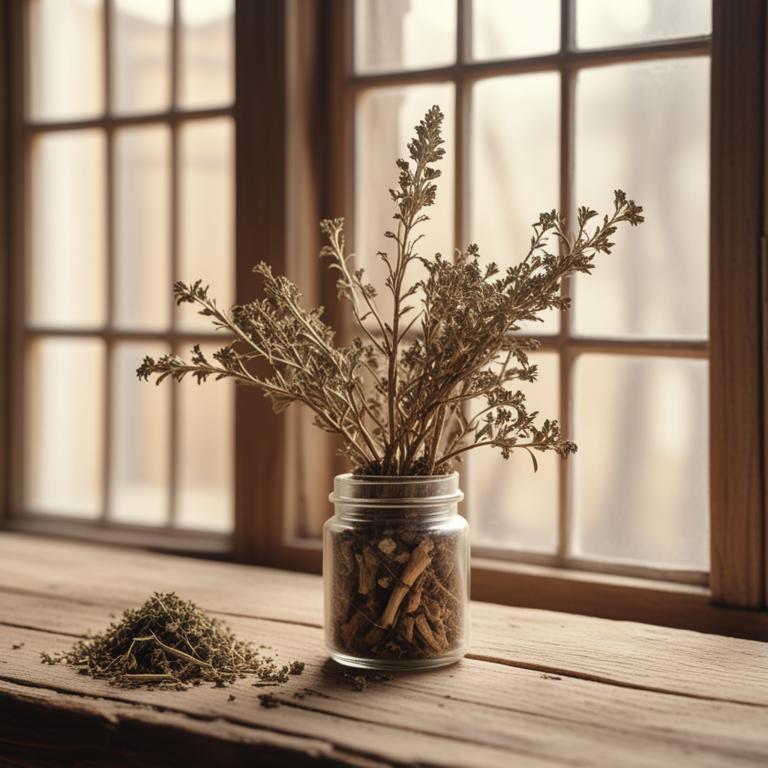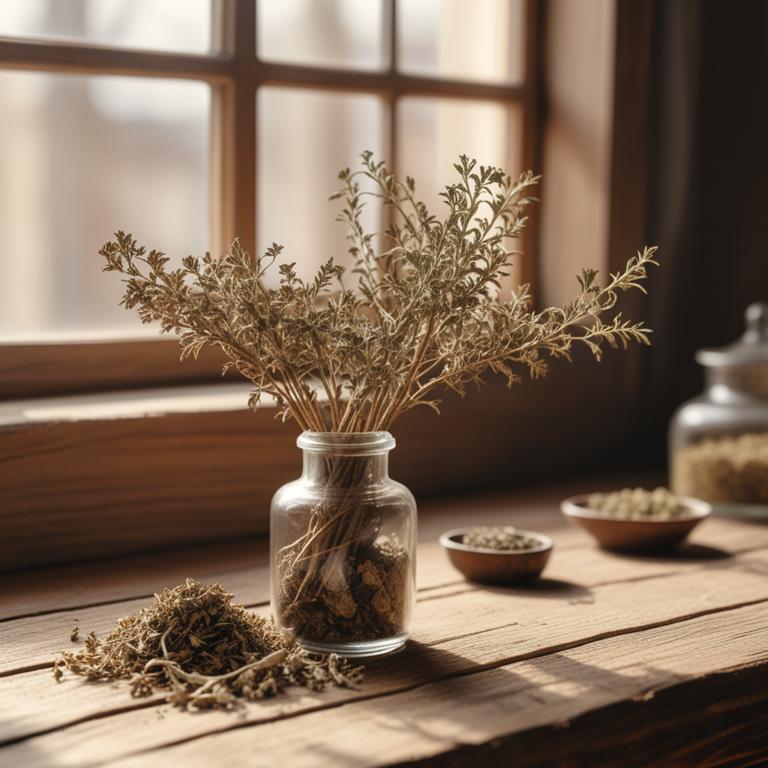Updated: Dec 1, 2024
Emphysema Causes, Symptoms, and Herbal Relief Options
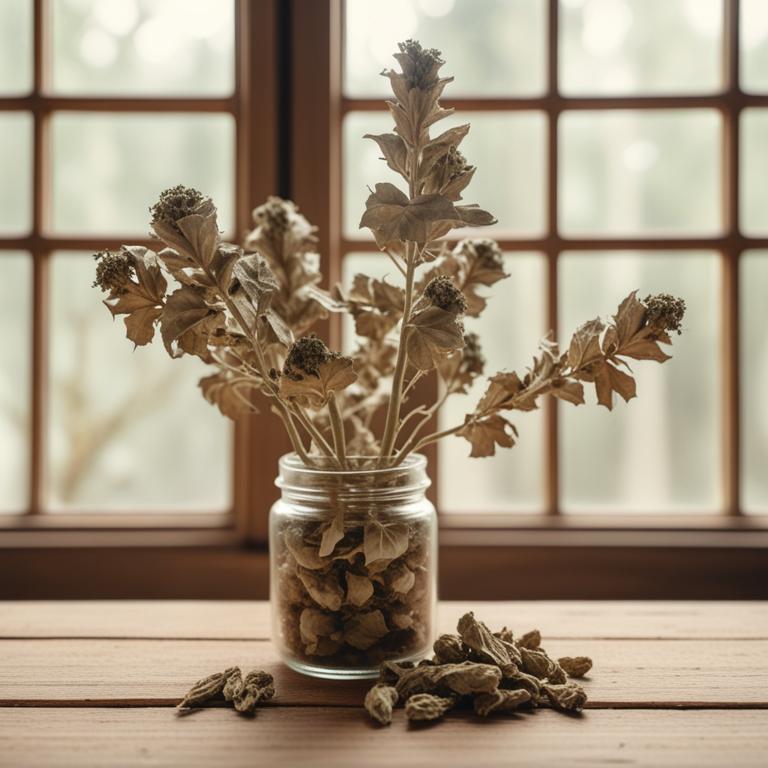
Emphysema is a serious lung disease that makes it hard to breathe.
People with emphysema often feel tired and short of breath, even when they're doing simple tasks. They may need to take frequent breaks to rest and catch their breath. Emphysema is usually caused by smoking, but it can also be caused by exposure to secondhand smoke, pollution, and other lung irritants. For many years, herbal remedies have been used to help manage emphysema symptoms. Herbs like ginkgo biloba, which is known for its ability to improve blood flow and reduce inflammation, can be very helpful.
Another herb, thyme, has antimicrobial properties that can help fight off infections that can make emphysema worse. Herbal teas are a popular way to use these remedies. Drinking ginkgo biloba tea, for example, can help improve lung function and reduce shortness of breath. Thyme tea can be made by steeping fresh thyme leaves in hot water, and it can help soothe a sore throat and calm coughs. Some herbal supplements, like N-acetylcysteine, can also be taken to help reduce inflammation and improve lung function. While herbal remedies can be helpful in managing emphysema symptoms, it's essential to talk to a doctor before trying any new treatments.
They can help determine the best course of treatment and ensure that any herbal remedies won't interact with other medications or worsen the condition.
Table of Contents
What leads to emphysema?
The main causes of emphysema are a combination of genetic, environmental, and lifestyle factors.
Genetics play a role because some people are born with a family history of emphysema. This means that if their parents or grandparents had the condition, they may be more likely to develop it too. Smoking is another major cause of emphysema. When people smoke, they inhale thousands of chemicals that damage the lungs and make it harder for them to breathe. This can lead to the destruction of the tiny air sacs in the lungs, causing emphysema.
Alpha-1 Antitrypsin Deficiency is a rare genetic disorder that can cause emphysema. People with this condition have a problem with a protein called alpha-1 antitrypsin, which normally helps protect the lungs from damage. Without enough of this protein, the lungs can become damaged, leading to emphysema. Aging is also a risk factor for emphysema. As people get older, their lungs naturally start to lose their ability to function properly.
This can lead to a decline in lung function and an increased risk of developing emphysema.
What advantages does using herbs have for emphysema?
Using certain herbs can be helpful for people with emphysema.
One of the main benefits is that these herbs can help to open up airways, making it easier to breathe. They can also reduce inflammation in the lungs, which is a common problem for people with emphysema.
Some herbs may even help to break down mucus, making it easier to cough up and get rid of. Additionally, these herbs can help to protect the lungs from further damage and support the overall health of the respiratory system.
This can make a big difference in the quality of life for people with emphysema, allowing them to breathe more easily and do the things they enjoy.
What are the primary medicinal herbs recommended for emphysema patients?

Herbs can be a great addition to the treatment of emphysema, a chronic lung disease.
Echinacea purpurea, also known as coneflower, has anti-inflammatory properties that can help reduce swelling in the lungs and airways, making it easier to breathe. It's also known to boost the immune system, which can help fight off infections that can worsen emphysema. Curcuma longa, or turmeric, contains a compound called curcumin, which has powerful antioxidant properties. These properties can help reduce oxidative stress in the lungs, which can lead to damage and inflammation. This can help slow down the progression of emphysema.
Ginkgo biloba, one of the oldest living tree species, has been shown to improve circulation and reduce inflammation in the lungs. This can help increase oxygen levels in the body and reduce symptoms of emphysema, such as shortness of breath and fatigue. Panax ginseng, or Asian ginseng, has been used in traditional medicine for centuries to improve respiratory function and boost the immune system. It's also known to reduce fatigue and improve overall well-being. Astragalus membranaceus, also known as milk vetch, has anti-inflammatory properties that can help reduce swelling in the lungs and airways.
It's also known to improve respiratory function and boost the immune system, making it easier to fight off infections that can worsen emphysema.
What are the herbal remedies that are most often used to manage emphysema?

If you have emphysema, herbal preparations can help.
A tincture is a strong liquid extract of herbs like thyme and eucalyptus, which can be inhaled to loosen and clear mucus from your lungs. This can help you breathe more easily. A decoction is a liquid made by boiling herbs like mullein and licorice root in water.
These herbs have anti-inflammatory properties that can help reduce swelling in your airways and make it easier to breathe. An infusion is a liquid made by steeping herbs like peppermint and ginger in hot water. These herbs have natural expectorants that can help loosen and clear mucus from your lungs. Herbal capsules contain dried herbs like ginseng and ashwagandha that have antioxidant properties, which can help reduce inflammation and improve lung function.
Drinking herbal tea, like slippery elm and marshmallow root, can also help soothe and calm your airways, making it easier to breathe.
Additional Resources:
What herbs can exacerbate emphysema, and should be avoided?
If you have emphysema, it's essential to be careful with certain herbs that can make breathing even harder.
One herb to avoid is Ephedra sinica, which can increase airway constriction and make it harder to breathe. This can be especially problematic for people with emphysema, as their airways are already narrowed. Valeriana officinalis, also known as valerian root, can slow down breathing and heart rate, making it difficult for people with emphysema to get enough oxygen.
Similarly, Piper methysticum, or kava, can also slow down breathing and heart rate, which can be a problem for people with emphysema. Pausinystalia johimbe, also known as yohimbe, can increase heart rate and blood pressure, which can be overwhelming for people with emphysema. Lobelia inflata, or lobelia, can cause airway constriction and make breathing even harder.
These herbs can worsen emphysema symptoms and make it more challenging to manage the condition.
FAQ
Are there any specific herbs that can prevent emphysema?
Some herbs, like ginger and turmeric, contain compounds that may help reduce inflammation in the lungs and prevent damage from emphysema.
Ginger's active compound, gingerol, has anti-inflammatory properties, while turmeric contains curcumin, which has been shown to reduce oxidative stress in lung tissue.
These herbs may be beneficial for people at risk of emphysema.
Is it safe to use herbal remedies for emphysema during pregnancy?
Using herbal remedies for emphysema during pregnancy can be a concern.
Some herbs may stimulate the uterus, which can cause a miscarriage. Others can affect blood pressure or worsen breathing problems. If you're pregnant and have emphysema, it's best to avoid herbal remedies and stick to recommended treatments.
Talk to someone who can help you make a decision.
Are there any herbs that can reduce the frequency of emphysema?
Some research suggests that certain herbs may help reduce the severity of emphysema symptoms.
Turmeric, for example, contains a compound called curcumin, which has anti-inflammatory properties that may help ease breathing.
Ginger, another herb, has been shown to reduce inflammation and improve lung function in people with emphysema.
Related Articles
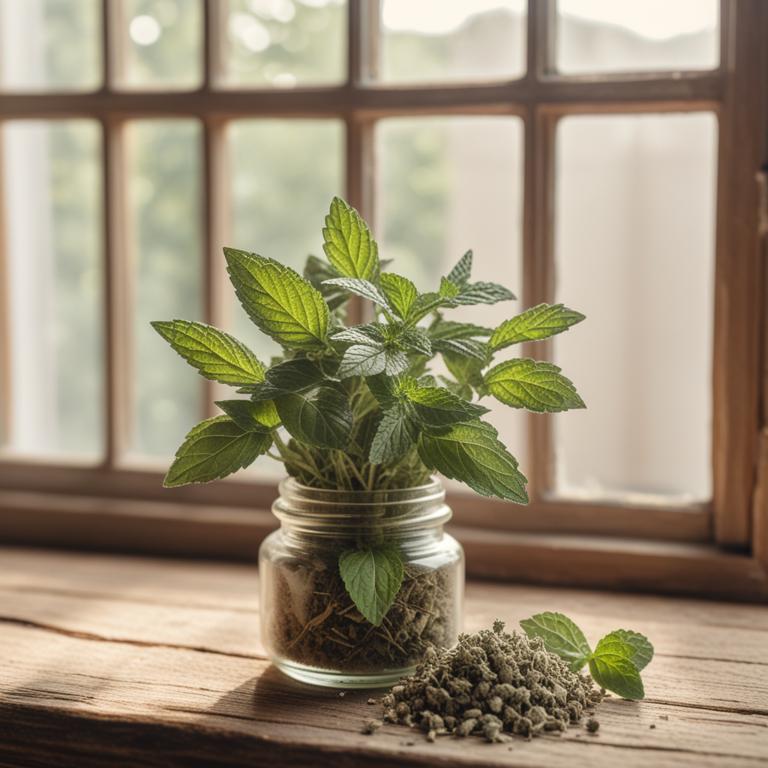
Laryngitis: Causes, Symptoms, and Herbal Preparations for Relief
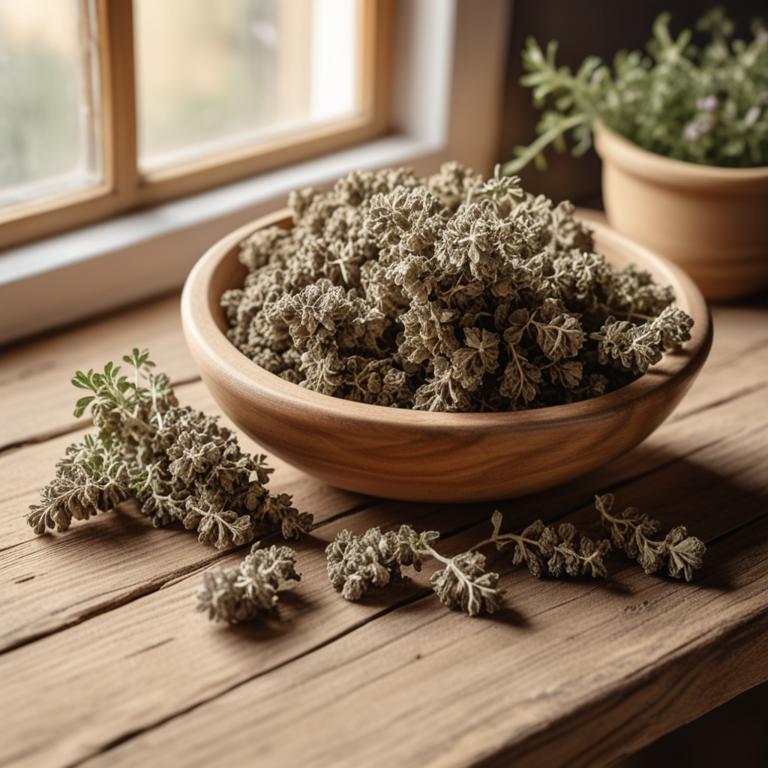
Phlegm: Causes, Herbs, and Medicinal Preparations for Relief

Chest Congestion: Understanding the Causes and Herbal Solutions
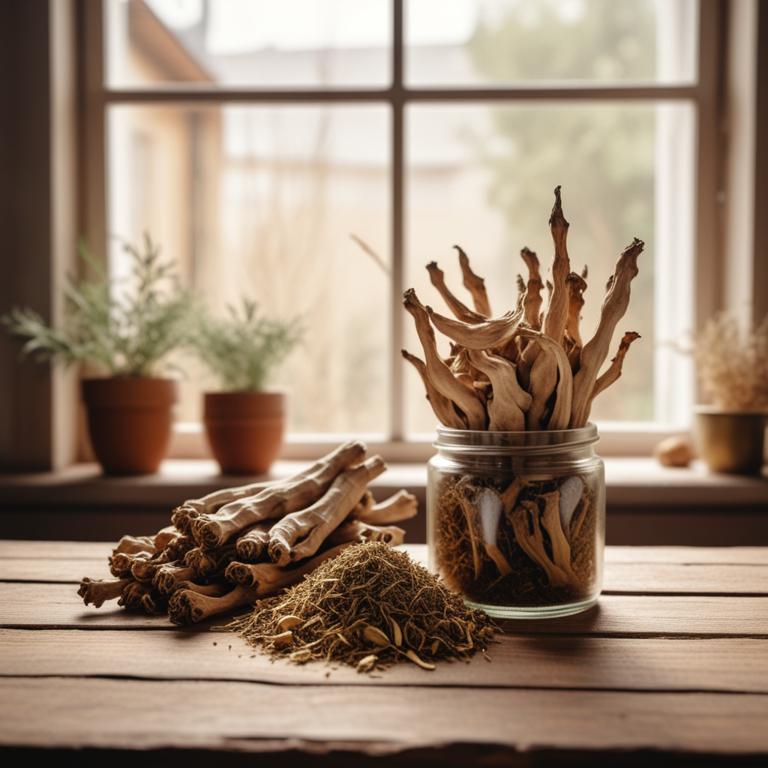
Understanding Chronic Bronchitis: Causes, Medicinal Herbs, and Herbal Remedies
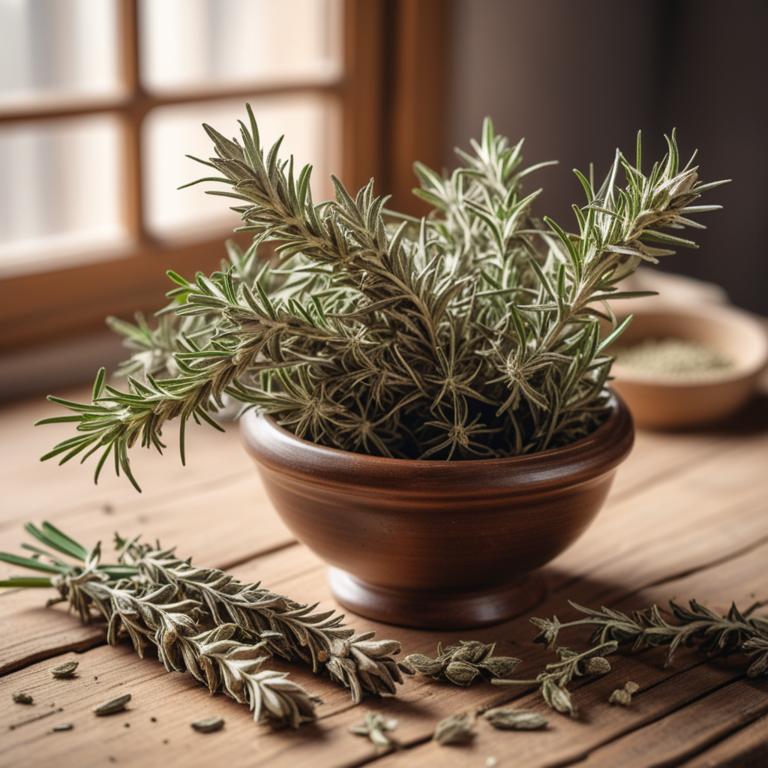
Understanding Sinusitis: Causes, Herbal Remedies, and Natural Treatments
